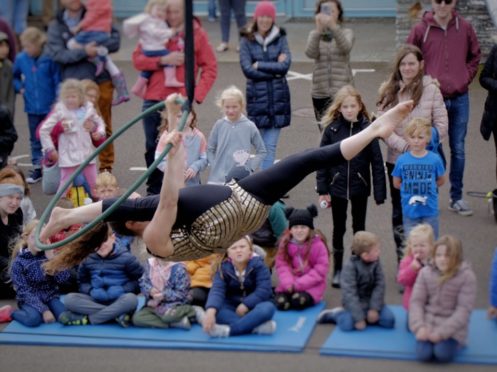The Scottish mainland’s most northerly arts venue has doubled its audience figures and attributes that success to working in partnership and refusing to patronise audiences.
Charlotte Mountford, co-director of Lyth Arts Centre (LAC), made the claim while writing for industry magazine Arts Professionals about a marked increase in audience numbers of both adults and children.
Situated between the towns of Wick and Thurso, LAC was established in 1977, and is a former Victorian school which has been converted into a purpose-built studio theatre, cafe bar and artists’ accommodation.
Explaining the growth in audience, Ms Mountford said: “At the end of our spring season, LAC reported a record number of visitors to its events, gigs and performances.
“As well as the deep engagement of the last 18 months, we can also attribute some of this to a rebrand. This saw the launch of a new website and a bright pink brochure, which was delivered to every household in Caithness.
“This level of door-to-door marketing simply wouldn’t have possible or affordable in an urban area – but it’s one small luxury we can and definitely should invest in.
“Between March and June 2019, LAC had 2,209 visitors – more than double the amount for the same period in 2018.
“This might seem small fry to a large city centre arts organisation, but for us it’s almost 10% of the whole population of the county.
“As well as hundreds of new first time visitors, the organisation hosted twenty sold-out performances from theatre companies and bands from across Scotland and the world. “The turnover of LAC has trebled from £110,000 in 2017 to £350,000 in 2019, even though we took the decision to absorb all booking fees and reduce ticket prices.
“Bringing artists from across the world into our creative hub is great, but we must be able to support home-grown talent and the incredible stories that come from that.
“Building and sustaining a creative community in Caithness is ultimately what LAC aims to do – and this isn’t always straightforward in an area where many artists struggle to make a living.”
Ms Mountford said that developing partnerships with artist and business has meant diversifying LAC’s programme and challenged preconceptions.
She added: “Our audiences want to be entertained and enlightened, not patronised.”
